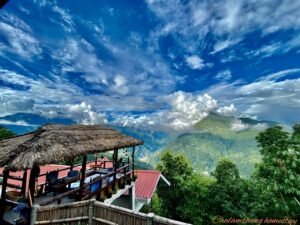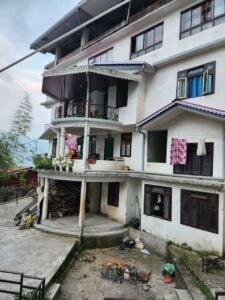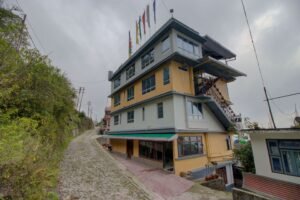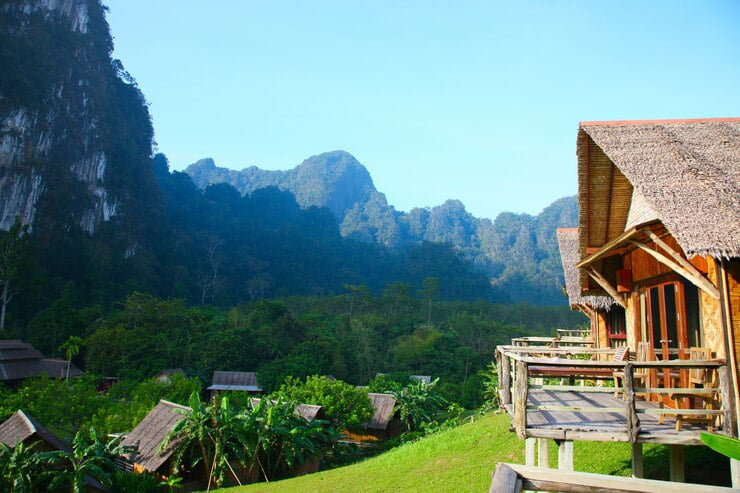No products in the cart.
Sikkim’s Homestays—A Growing Success Story
The homestay initiative in Sikkim is evolving with the state government coming out with new guidelines for house owners in this segment of the tourist industry
Sikkim’s Tourism and Civil Aviation Department has issued an advisory—which is in alignment with the Sikkim Registration of Homestay Establishment Rules of 2013—emphasising that homestay owners are banned from entering into leasing or renting arrangements with third parties. Instead, they are required to operate and manage their homestay units personally. This decision aligns with the government’s broader objective of promoting entrepreneurship within the local community, particularly in the tourism sector. As part of this initiative, the Sikkim Government has also been providing subsidized loans to support the establishment of homestays in the region and to promote entrepreneurship amongst local stakeholders in the tourism industry. The Homestay Association of Sikkim (HAS) has long been advocating for such a ban on the leasing and renting of homestay establishments to third parties.
particularly in the tourism sector. As part of this initiative, the Sikkim Government has also been providing subsidized loans to support the establishment of homestays in the region and to promote entrepreneurship amongst local stakeholders in the tourism industry. The Homestay Association of Sikkim (HAS) has long been advocating for such a ban on the leasing and renting of homestay establishments to third parties.
This decision marks a shift in the operation of homestays across Sikkim. They will now exclusively be managed by the local entrepreneurs who own these establishments. In Sikkim, around 1,200 homestay accommodations are registered with the state government. Sikkim was the first state in the country to frame an eco-tourism policy for sustainable development through resource conservation, cultural revival, economic development, and diversification. Endowed with impressive varieties of tourism products including nature and trekking-based tourism, eco-tourism, wildlife tourism, adventure tourism, wellness tourism, pilgrimage tourism and heritage tourism, homestay tourism, community-based tourism, etc.

Sikkim aims to establish low-impact sustainable tourism and transform itself into a round-the-year destination. It has taken steps to share the profits from tourism for the socio-economic development of the region and at the same time maintain consistency and high standards in tourism infrastructure development and services industry.
What gives it even more heft as an ecotourism hub is the warm hospitality of its people, the rich culture, and the abundance of pristine natural beauty.
Eco-tourism in rural areas of the state has been initiated by the Sikkim Himalayan Home Stay Association. Supported by UNESCO, Paris, the Norwegian Govt., and the Principality of Andorra, this initiative was implemented by Ecotourism & Conservation Society of Sikkim (ECOSS). The Sikkim Himalayan Homestays Program is operational at Dzongu (North Sikkim), Pastanga (East Sikkim), Yuksom (West Sikkim) and Kewzing (South Sikkim). Moving forward, ECOSS has also explored new areas for developing rural eco-tourism hubs at Naitam (East Sikkim), Lingee Payong (South Sikkim), and Ray Mindu (East Sikkim).
The Sikkim Registration of Homestay Establishment Rules 2013 initiated the construction of over 700 homestays in a string of villages across the state providing the impetus needed to foster the growth of Sustainable Rural Tourism and CBET in the state.
Sikkim Himalayan Homestays in collaboration with ECOSS has conceptualized the potential, characteristics, and cultural components of homestays and developed operation modalities and capacity-building programs for local communities. Homestays offer an authentic and immersive experience, allowing you to connect with the local community, taste traditional cuisine, and explore the region’s natural beauty. HomestaysSikkim.com is a homestay listing and booking website that connects traveler’s with hosts offering homestay accommodations in various destinations in Sikkim. It offers a wide range of homestay options, each offering a unique experience. The choice of accommodations ranges from traditional farmhouses to cosy village cottages.
Homestays offer an authentic and immersive experience, allowing you to connect with the local community, taste traditional cuisine, and explore the region’s natural beauty. HomestaysSikkim.com is a homestay listing and booking website that connects traveler’s with hosts offering homestay accommodations in various destinations in Sikkim. It offers a wide range of homestay options, each offering a unique experience. The choice of accommodations ranges from traditional farmhouses to cosy village cottages.
Homestays have become an important cornerstone of the state’s tourism sector, emphasizing sustainable tourism practices and providing a source of livelihood for local communities. The establishment of the Homestay Association has brought significant benefits to the homestay industry in Sikkim. It has helped to create a sense of unity among homestay operators, allowing them to work towards a common goal of enhancing their services and promoting the state’s tourism industry.
















